Every now and again we hear about a pigeon called Gustav that was awarded the Dickin medal after bringing home the first message about the D-Day landings. Recently there was a news item on the BBC website:
Heroic D-Day pigeon from Portsmouth remembered on Dickin Medal 80th anniversary
Gustav was released by journalist Montague Taylor off the coast of Normandy in the SWORD assault area, with a message he wrote on board an L.S.T. as it approached the beaches.
What is not generally known is the connection that Gustav’s exploit has with an RAF Beach Squadron.
The following snippet from the Belfast Telegraph on 6th June 1944 leads us into the story of this connection:
CARRIER PIGEONS READY
From MONTAGUE TAYLOR
RAF BEACH SQUADRON, H.Q.The invasion army has thought of everything, including carrier pigeons to carry the big news home if all else fails.
A wing commander arrived here only a few hours before I embarked on my landing ship tank and presented me with a basket of four pigeons, complete with food and message-carrying equipment.
http://www.bbc.co.uk/northernireland/yourplaceandmine/topics/war/dday_news.shtml
The connection is more fully explained in Alan Melville’s book “First Tide” (Skeffington & Son, London, 1946).
Writer, Alan Melville had enlisted in the RAF in 1941 and by 1944 had been commissioned and was working as an Air Information Officer. For the invasion he was attached to No. 1 R.A.F. Beach Squadron “and was to take a jeep containing a war correspondent, a man from the R.A.F. Film Unit, a driver, and myself”. Melville refers to the war correspondent as “Henry”, but it is clear from the other information we have that this person is Montague Taylor.
Melville, as the publisher puts it on the book’s dust jacket, “gives fascinatingly realistic pictures, shot with humour and emotion, of the scenes described”. The pigeon story comes in as his party are about to leave the Concentration Area and move forward for embarkation.
We were just moving off when a large car drove up and a panting Wing Commander got out of it carrying a colossal wicker basket and a fairly large waterproof-covered packing case. “Thank God I caught you in time,” he said. “I’ve brought your pigeons.” “My what?” I said. “Your pigeons. You must have pigeons, you know.” And sure enough, the wicker basket contained four of the infernal birds, cooing like mad things. I told the Wing Commander as firmly as possible, considering the difference in our ranks, that I hadn’t the slightest intention of cavorting over the Continent with a portable aviary, and for a moment I thought he was going to burst into tears. He had the perfect salesman’s manner and when he brought out the set of one dozen collapsible drinking troughs, my sales resistance broke down completely and the four birds (whom we christened Blood, Sweat, Toil, and Tears) were lashed to the top of the mountain of gear already on the Jeep. Toil gave me a sharp peck when I was trying to be friendly to her during a halt on the journey, and Henry only just managed to restrain me from releasing the whole quartet there and then with four rude messages to the Wing Commander.
Alan Melville, “First Tide”, Skeffington & Son, London, 1945 (page 21)
The reader will note that Montague Taylor (aka Henry) said the Wing Commander handed over the four pigeons to him whereas, according to Alan Melville, he was the recipient. There’s a bit of journalistic licence involved here, but it is likely that they were given to Melville as he was the R.A.F. officer in charge of the party. Given the feelings Melville expresses about being given the pigeons we might assume that he was happy to hand them over to Henry’s care!
Alan Melville’s party and their Jeep were embarked upon L.S.T. 302 at Portsmouth and “lay at anchor for three days while our part of the invasion fleet mustered”.
On the evening of the second day ……. an immaculate R.A.S.C. launch with its full crew came alongside and to my horror four more pigeons were hauled up on deck with a polite note from the Wing Commander saying that we’d better be on the safe side, and that he hoped we were remembering to give Blood, Toil, Sweat, and Tears their water every evening.
Alan Melville, “First Tide”, Skeffington & Son, London, 1945 (page 24)
Finally, on 6th June 1944, as L.S.T. 302 approached the SWORD beaches, Melville describes how Gustav the pigeon was released by Montague Taylor with that famous message.
Henry released a pigeon with a message saying that we were about to land; I think it was Sweat, but there was always some doubt about individual members of the quartet. Whichever bird it was, it circled above us three times and then made for England as though its life depended on getting the hell out of this part of the world as quickly as possible – which may well have been the case. It made the evening papers that Tuesday, which cheered Henry enormously. We watched until we could see it no longer, and then we turned round to face Normandy.
Alan Melville, “First Tide”, Skeffington & Son, London, 1945 (page 26)
A series of official photographs tells the story of Gustave the pigeon arriving with Montague Taylor’s message. I think we can assume that these were staged after the event, but nevertheless they show Gustav back at base, after the event.
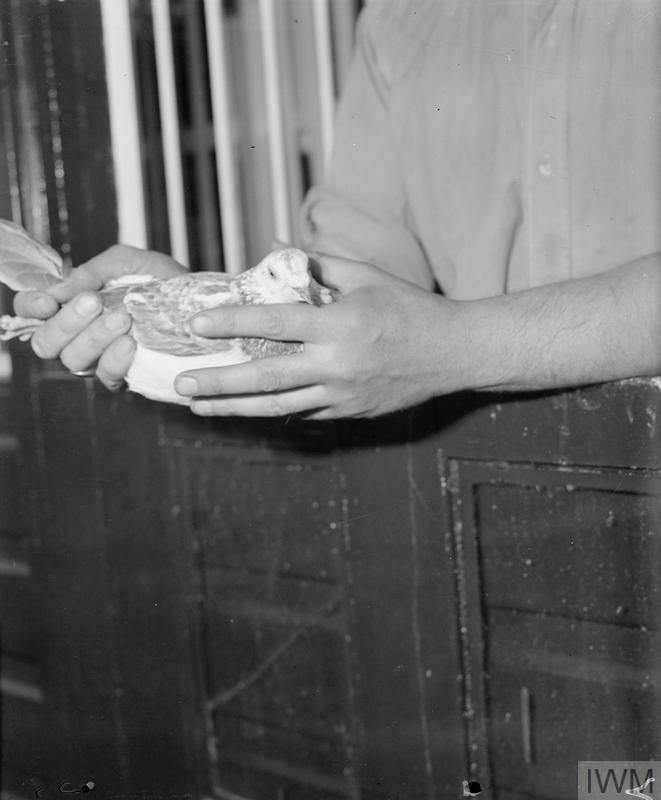
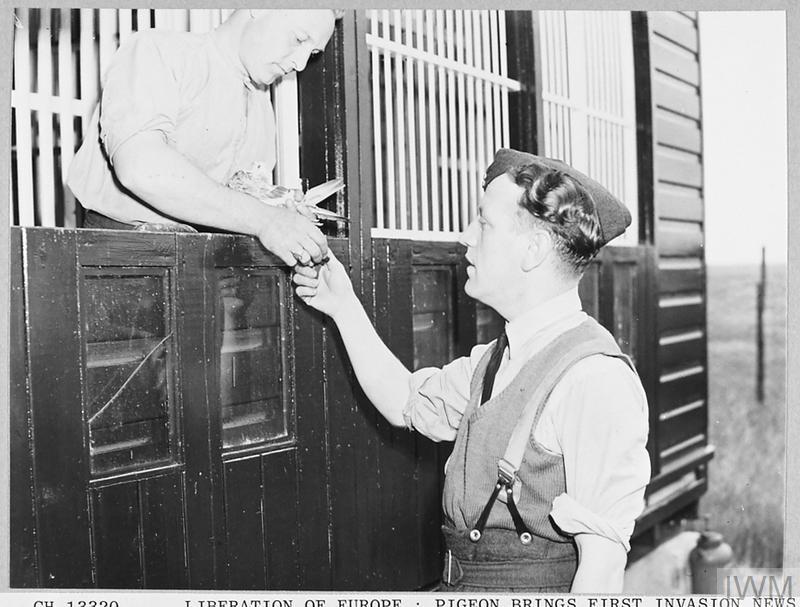
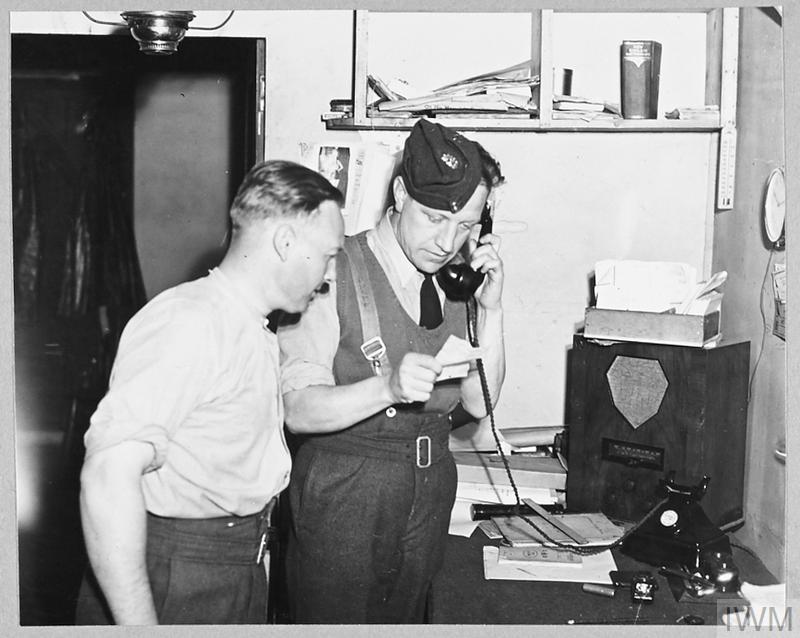
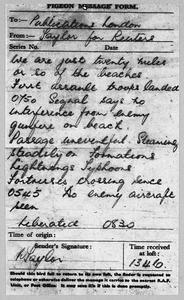
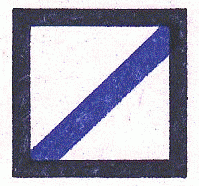
One reply on “The Pigeon Connection”
[…] a previous blog post, The Pigeon Connection, I wrote about the Air Information Unit attached to No. 1 R.A.F. Beach Squadron. This was led by […]